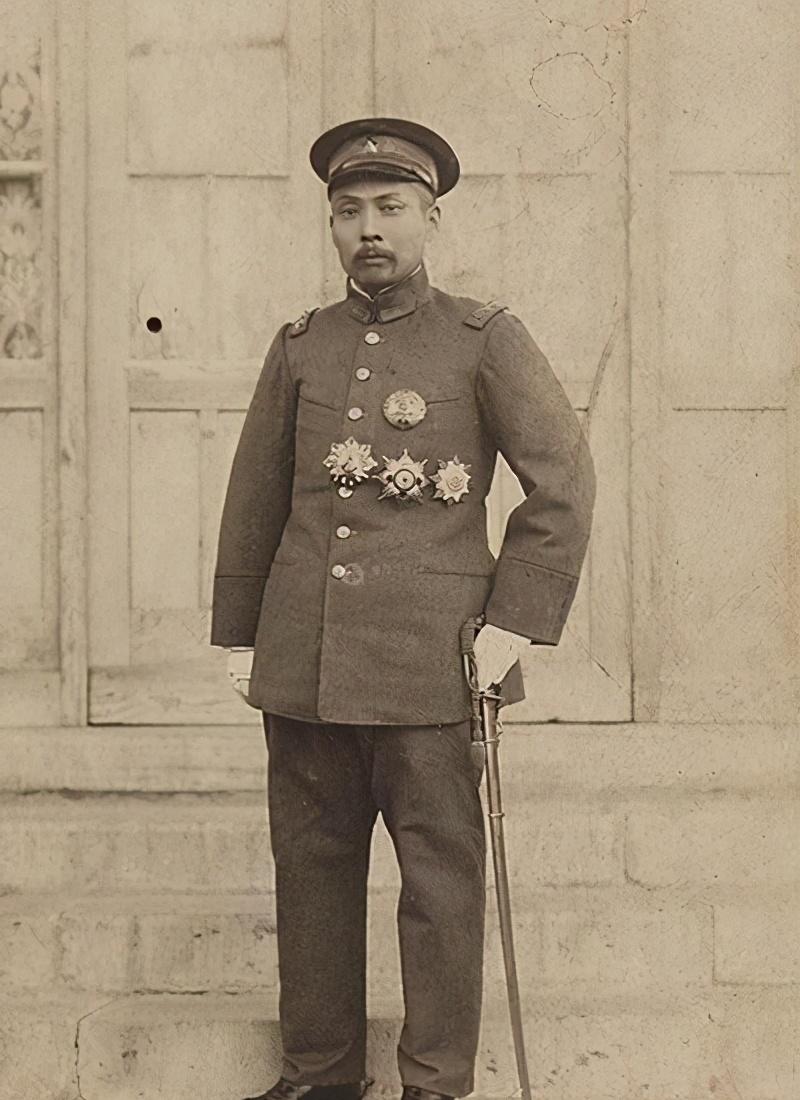
Among the many warlords of the Republic of China, Duan Qirui, the "Tiger of the Beiyang", is a special one. After His death, Duan Qirui had a high reputation and had the reputation of "three republics" and "six prime ministers". The "March 18" massacre in 1926 completely ended Duan Qirui's political career, when he was 61 years old. For a long time, many people believe that Duan Qirui ordered the shooting of the demonstrators, and after Lu Xun's article "Remembering Liu and Zhenjun", it became the biggest stain on Duan Qirui.
After Duan Qirui went to the wilderness, his income plummeted, coupled with his ethics of "not greedy, not gambling, not smoking, not prostituting, not drinking, and not occupying", which made his later life more and more embarrassing. During his life in Tianjin, Duan Qirui constantly reduced family members, dismissed his aunts and wives, and reduced the number of servants again and again.
After the "918" incident in 1931, the Japanese approached Duan Qirui, hoping that he would go out of the mountains to preside over the "overall situation" and promised the high-ranking official Houlu. Duan Qirui directly refused, and he said to the Japanese who came to visit: "If we in the wild want to mediate, we must have a basis for speaking." Using an on-the-spot armistice as a mediation is probably not an easy task. If the authorities ask about the three eastern provinces, how will they respond? Today, the morale of the Chinese army is no higher than that of the Kwantung Army. If there is an armistice, it should also be stopped by the Japanese army first, because the Japanese army started the war first. ”
The Japanese were not willing to accept defeat, visited the door many times, and also asked Duan Qirui's old subordinate Wang Yitang to come forward. The more Duan Qirui thought about it, the more angry he became, and he scolded: "I am a Chinese, and I will never be a traitor puppet, even you yourself must think about it carefully, and don't be sorry for your ancestors, parents and descendants." ”
Living in Tianjin, there are constantly old ministries and Japanese people coming to "harass". In January 1933, Duan Qirui resolutely left Tianjin and went south despite the persuasion of others. Duan Qirui's move was praised by the people of the time, when the newspaper praised, "Duan's visit not only has a bright attitude and gives the people of the country a good feeling; in his old age, he thinks of the difficulties of the country, and he is not afraid of trekking; especially the people of the country, in addition to showing respect, also know that they are also rising up." ”
Duan Qirui's life in Shanghai is still relatively difficult, and the Nationalist government gives him 20,000 oceans a month, but he gives a large part to the old ministry or others. Duan Qirui had a strong national integrity after shino, and he said many times that in order to drive out the Japanese invaders, the people of the whole country needed to unite, "Our country can only be one heart and one mind, strive to seek self-sufficiency, and the language cloud: it is better to seek others than to seek oneself." If the whole country is actively preparing and working together to cope, although there are ten Japan, why should we be afraid? ”
On November 2, 1936, Duan Qirui died of illness in Shanghai at the age of 72. Before his death, Duan Qirui left the famous "Eight Wills", that is, "Do not lightly start political disputes because of my views, do not talk about empty talk and disregard practice, do not waste the people's wealth because of unhurried affairs, do not believe in excessively radical theories and shake the state; diplomats must not forget to consolidate national defense, teachers and educators must not forget to preserve the essence of the country, those who govern the family should not abandon the inherent etiquette and teaching, and scholars should not seek scholars to avoid the chaos of fashion." The so-called self-reliant are here, and the weak are also here. ”
Duan Qirui repeatedly asked for a funeral from Jane, but his coffin was transported back to Beijing and a grand funeral was held. The cemetery chosen for him by Duan Qirui's old ministry was the former site of Baosheng Temple in Xiangshan, which was opposed by his family, and as a result, his coffin was temporarily located in the reclining Buddha Temple. At that time, no one expected that this would be 28 years.
In 1963, under the auspices of Zhang Shizhao, Duan Qirui was buried in The Wan'an Cemetery in Beijing. During the special period, the Duan Qirui cemetery was destroyed and rebuilt in 1978, and the cemetery is now very shabby and simple.